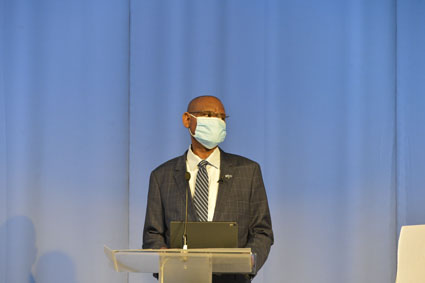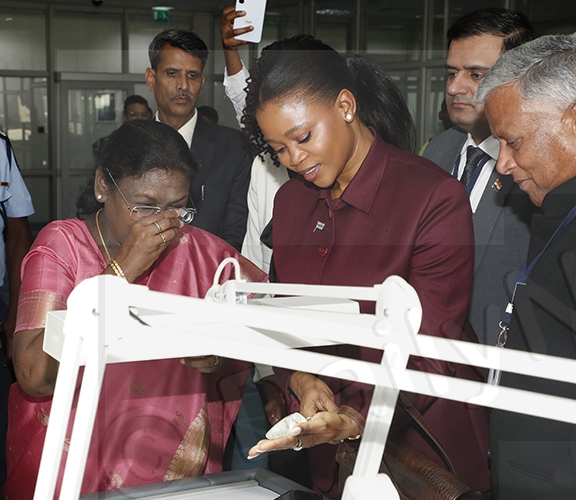Monetary committee maintains bank rate
20 Jun 2021
Monetary Policy Committee (MPC) has taken a decision to maintain bank rate at 3.75 per cent, Bank of Botswana governor, Mr Moses Pelaelo has said.
He was briefing the media virtually on Thursday.
Mr Pelaelo stated that projections by Ministry of Finance and Economic Development and International Monetary Fund (IMF) suggested a rebound in economic growth for Botswana in 2021.
He said the ministry projected a growth rate of 8.8 per cent in 2021, before moderating to 5.5 per cent in 2022, while IMF forecasted domestic economy to grow by 8.3 per cent in 2021 and was expected to moderate to 6.4 per cent in 2022.
“This growth outcome will largely depend on successful roll out of vaccination programme,” he explained.
He said adverse effect of COVID 19 containment measures posed uncertainty challenges to economic growth given the county’s economic vulnerability to external shocks in diamond prices and demand, tourism and delay in delivery on import of supplies.
Global output growth was forecasted at six per cent in 2021, reflecting anticipated vaccine-powered recovery in the second half of the year as well as maintenance of policy support in advanced economies.
The governor further pointed out that the global output growth was anticipated to moderate to 4.4 per cent in 2022, as some economies returned to their pre-COVID 19 levels.
It was for these factors, Mr Pelaelo explained, that the MPC decided to continue with accommodative monetary policy stance and maintain the bank rate at 3.75 per cent. .
As indicated in the last MPC brief, he said, inflation increased from 5.6 per cent in April to 6.2 per cent in May.
The increase, he said, breached the upper bound of the bank’s medium term objective range of 3-6 per cent for the first time since June 2013.
“The increase in inflation in May mainly reflects second round effects of the recent upward adjustments in administered prices. However, inflation is projected to revert to within the objective range in the second quarter of 2022,” he said.
Overall, the governor enlightened that risks to inflation outlook were assessed to be skewed to the upside, which included potential increase in international commodity prices beyond current forecasts; persistence of supply constraints due to possible maintenance of travel restrictions and lockdowns.
He added that domestically, based risk factors relating to second-round effects of the recent increases in administered prices could lead to generalised higher prices.
“Furthermore, aggressive action by governments for example through Economic Recovery and Transformation Plan (ERTP) and major central banks to bolster aggregate demand, as well as successful roll out of the COVID-19 vaccination programmes could add pressures to inflation,” he said.
However, Mr Pelaelo said such risks were moderated by possibility of weak domestic and global economic activity, with a likely further dampening due to periodic lockdowns and other forms of restrictions in response to emergence of new COVID-19 variants. ENDS
Source : BOPA
Author : Taboka Ngwako
Location : Gaborone
Event : Media Briefing
Date : 20 Jun 2021






